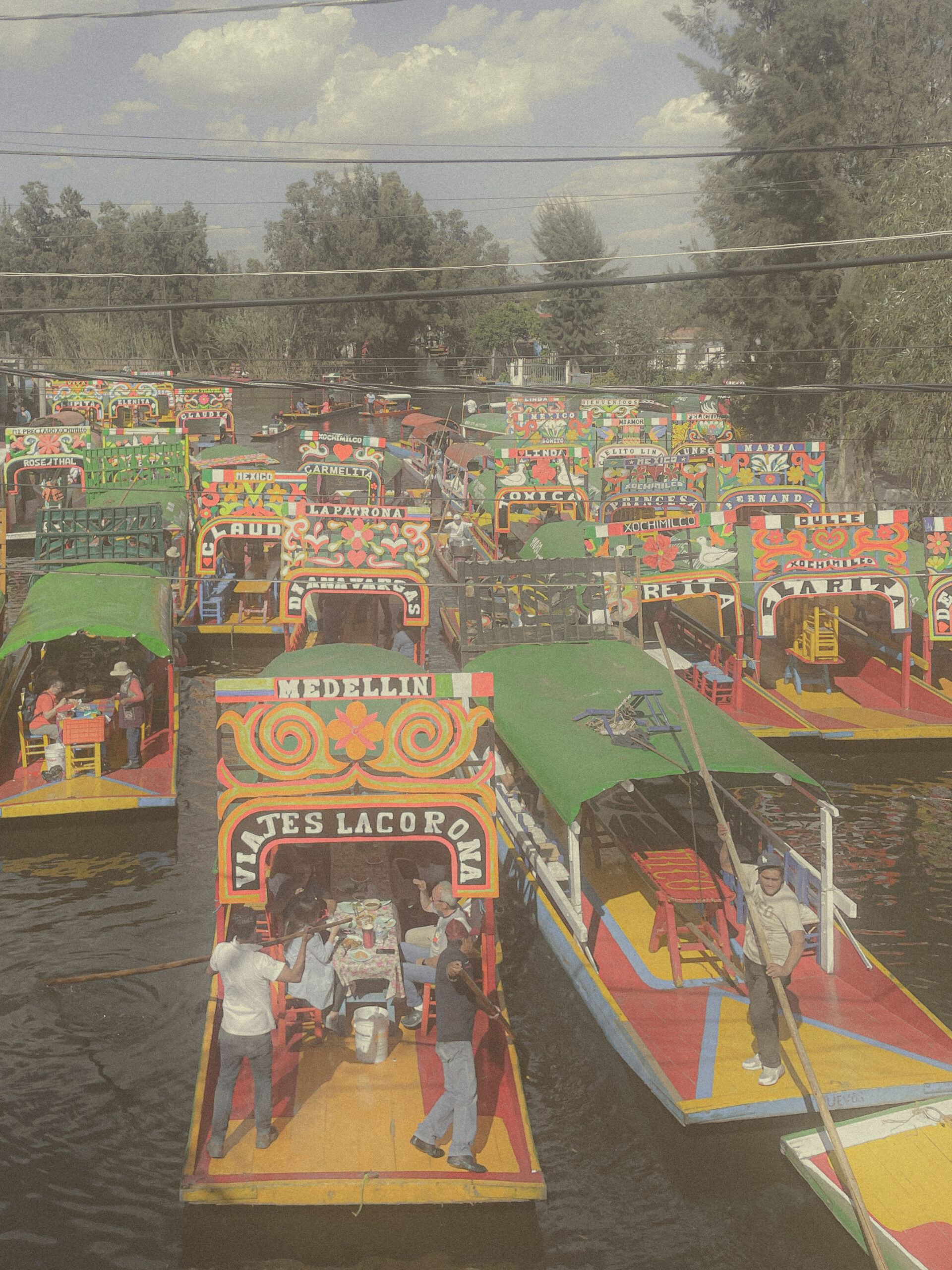

Conscious travel gaining popularity. As people become more aware of how their actions impact the world around them, the more they are zeroing in on travel as an area of importance.
Since it’s a rather new concept to the general population, it’s normal that people are wondering, what is conscious travel anyways?
One quick Google search of conscious travel or eco-travel can lead you down a winding road of different terms and ways to approach your explorations consciously.
It can be pretty overwhelming at first since there’s no hard and fast definition for conscious travel.
This article aims to clarify what conscious travel is, why it’s important, how you can start to adapt it, and some resources to get you inspired.
If we boil it down, conscious travel is simply embarking on your adventures with a heightened sense of awareness and purpose.
The Conscious Travel Foundation defines it as,
It’s about approaching travel in a mindful way — touching everything from the reason why you’re going, to how you interact with the local communities.
It’s an umbrella of term of sorts that can covers everything from eco-travel, sustainable tourism, slow travel, and any other form of mindful travel.
The key is that when you embark on conscious travel, everything is done intentionally.
From choosing accommodations that create sustainable value for the local communities or excursions that help minimize our travel footprint. A conscious traveler is always mindful of their greater impact, both the positive and the negative.
In return, conscious travel gives us enriching authentic experiences that leave us with long-lasting connections to the places we’ve been— it’s a win-win-win scenario for local communities, the earth, and us.
Rather than setting off on a whim just because you can, conscious travel encourages us to take a step back and be mindful of how we approach our travels.
Being a responsible traveler doesn’t mean that your trips have to be centered around volunteering (although it can be if that’s what you’re into) or that you can’t be as adventurous or luxurious. Conscious travel looks different for everyone and on every trip.
When done right conscious travel can be more exciting, fulfilling, and transformational than your usual travel experience.
Often times when we travel we aren’t conscious of the impact we are making.
We go to the top Instagram hot spots to snap a few pictures and catch the next flight, trying to squeeze in as many trending destinations as possible.
We sip cocktails poolside at all-inclusive resorts, interacting very little with the local community and the true culture of the region.
When we travel for the sake of travel it can be extremely harmful to both the planet and the local communities.
Mass tourism and wasteful travel habits degrade the natural landscapes and the cultural makeup that make a place so special to begin with.
Along with the harmful impact created, it also doesn’t give us anything substantial back because we don’t create meaningful experiences.
We may feel refreshed for a few days, but the memories easily fade with no substance to hold onto.
Luckily for us, and the world, our mindsets are changing, and conscious travel is making its way into the mainstream. Conscious tourism is far from a buzzword, it’s really the future of the travel industry.
Research from OnePoll’s study for Exodus Travels shows that it’s what the majority of people are looking for.
Today 78% of travelers defining themselves as more “ethically conscious” than they were a decade ago. This shows us that conscious travel is not a passing trend, it’s here to stay.
When we adopt the mindset of a conscious traveler, the good that can come of it is abundant.
It’s a win for the environment, a win for the communities, and a win for us as travellers. We can’t really ask for more than that, can we?
With that in mind, here are some of the ways that conscious traveling leads to a win-win-win scenario:
Being conscious of how and where we travel promotes sustainable travel practices.
Conscious tourism goes against mass tourism, which is unsustainable for both the locals of the cities affected and the natural environment.
When people travel mindlessly, they are unaware of how their presence can be disruptive. When we are intentional about our travels, we can learn how to avoid creating a negative impact and avoid the degradation that happens with mass tourism.
When we hop from flight to flight trying to cross off as many locations on our bucket list in one go, it is extremely wasteful.
In our hopes to save a few hours, we take short flights that could be train rides, and in turn, create an enormous impact on the environment.
It’s also a waste because when you’re only in a location for a couple of days before heading to another one, you can’t fully engage in the destination.
When we slow down and think of travel as a quality-over-quantity type of experience we can fully engage while minimizing our environmental impact.
When you practice conscious traveling, the money you spend will funnel back into the communities that you visit.
This can be through where you stay, where you shop, and eat, and even what type of tours you take.
This helps create a more sustainable travel economy that lets the local community reap the benefits of tourism.
When you have an interest in getting to know the culture of the destination you are exploring, it promotes a deep and genuine connection.
When you ask thoughtful questions and seek out local advice, you will be surprised how a place can open its heart to you. You may even disembark on your travels having made lifelong friends.
By genuinely connecting with the location that you are in, the people, and the culture, your worldview starts to widen.
By understanding what makes a place tick, you start to understand the world on a deeper level. You stop seeing things only through the lens of your own culture and start to be able to see from another culture.
If you want to be a socially responsible traveler that embarks on mindful travels, it’s important to note that it starts before you even step foot in the airport. Researching the culture of your destination and understanding the do’s and don’t’s is an important step to becoming a responsible traveler.
Fight mass tourism by picking places off the beaten path. You’ll most likely get a more authentic experience in a lesser-explored city or village. You can always take a day trip to the travel hot spot without it being your main destination. That way you support a community that doesn’t get many visitors while helping to preserve the integrity of the city or location that is over-visited.
What you pack can make a big difference on your travel footprint. Make sure that you’re only bringing what you need with you. Packing smaller suitcases actually lowers our footprint when flying, because the lighter the plane is the less fuel it needs.
As well, you want to make sure that you’re packing reusable items, like reusable water bottles, toiletry containers, etc. It’s about being conscious of what you will need and making sure to pack it to avoid wasteful consumption. For example, if you’re going to a place where it might rain, pack an umbrella or a rain jacket to avoid buying a disposable poncho.
Whenever possible slow down your travels. Slow travel doesn’t have to mean that you spend 3 months at your particular destination. It can mean rather than picking 3 places to squeeze into a week, that instead, you spend the entire week in one destination. You can still take day trips (using responsible transportation) to other cities near where your main hub. Slow travel allows you to truly connect with the spot that you are in, letting the magic of the place you are in unfold to you day by day, rather than squeezing it in and hopping onto a plan to your next destination.
Whenever possible you should make sure that your accommodation is owned and run by locals. This can mean staying at smaller boutique hotels, guest houses, or even couch surfing if you’re up for it. This way you can be sure that your money is staying in the local community rather than ending up in the pockets of the people who own the multinational hotel chains that don’t give back.
This goes for anything that you spend money on. Want to buy a souvenir? Buy a piece of art from a local artist or something from an artisan. Avoid buying the mass-produced trinkets often sold in souvenir stores. Go to locally-owned restaurants. Hire local tour guides rather than from a large agency.
Eating what’s in season helps ensure that you’re helping the local farmers, rather than whoever is importing food. This also will help you eat more of the cultural dishes. Often times tourist destination will adjust their food to fit the taste pallet of the travelers rather than serve authentic flavors.
While flying is probably necessary to get you to your main destination, once you’re there you should try to move around in the least impactful way. Utilize public transport, rent bikes, or simply explore on foot.
When traveling to another city, take a train whenever possible, or try ride-sharing if you’re comfortable with it. For your main long-haul flight, always try to book direct flights, most of the impact of flying is made during take-off, so eliminating any unnecessary layovers can help reduce your flying footprint.
Avoid exploitative tourism excursions. This normally revolves around superficially engaging with the cities’ cultures or the local animals. Think swimming with dolphins, petting tigers, or riding camels. Often times the animals that are held in captivity are not treated how they should be. This can mean living in areas that are way too small for them, or even beating and sedating them to so they don’t get aggressive. If you want to engage with the local animals, look for animal sanctuaries that are run in ethical ways.
On the flip side, you should always make time to do a historical tour or something educational about the culture of where you are. For example, signing up for a Tea Ceremony tour while in Japan.
Doing this at the beginning of your trip might lead you down an unexpected path that you would have never known about prior to coming, or at the very least it will give you a greater appreciation for your host city.
Being curious and open-minded are key qualities for conscious travel. Often when we are in a culture that is different from our own we can be quick to judge. We can start to think what they eat is strange, or that their standards of hygiene are weird. Instead of judging based on standards that are rooted in your culture, be curious and ask questions. People are always happy to share their culture with others who are genuinely interested in understanding it.
While you might want to show off your amazing travels on social media (and you should!!) avoid geo-tagging the exact spot that you are in. This is one way to help fight mass tourism. While it might seem selfish to keep the spots you find to yourself, all it takes is one viral post to send a place into tourism overload. Rather just tag the country or the region you are in. If people want to go bad enough, they will ask you where it is, and then you can share your insight on conscious travel with them.
Whether you’re looking for knowledge on responsible travel or a conscious travel community, there are many resources available to help people start on their conscious travel journey. From books and blogs about sustainable travel to conscious travel foundations, there’s an enormous amount of information available. These are some of the things I recommend checking out:
Discloser: some of these links are affiliate links which means that if your purchase it I will get a percentage at no additional cost to you— I only promote things I love.










© 2023 Maia Conscious Living Privacy Policy | Gabs Nardo LLC
6 Responses